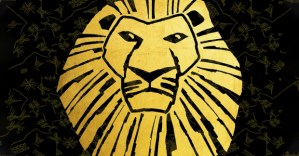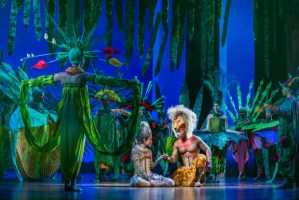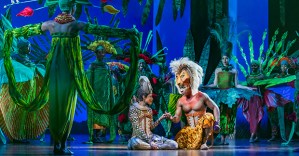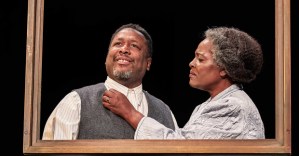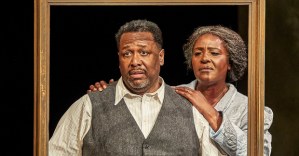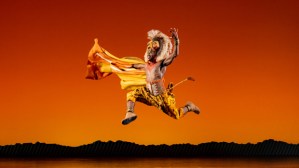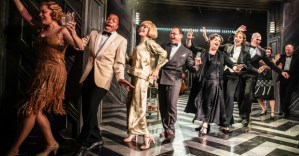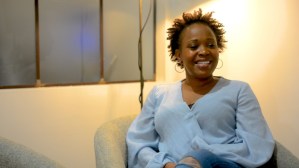The Lion King turns 20 in the West End – four Rafikis look back on their times in the show
WhatsOnStage talks to four of the women who have played the iconic role of ”The Lion King’s” Rafiki – Josette Bushell-Mingo, Sharon D Clarke, Gugwana Dlamini and Lindiwe Mkhize
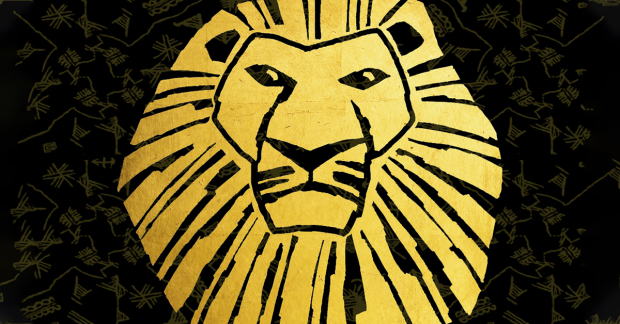
The Lion King is one of the most influential and popular stage productions of all time, particularly in the West End where it has entertained more than 16 million theatregoers over the last two decades. 2019 marks the 20th anniversary of the London show and to celebrate such a milestone, we spoke to four actors who have played Rafiki in the capital – Josette Bushell-Mingo, Gugwana Dlamini, Lindiwe Mkhize and Sharon D Clarke (who is about to star in Death of a Salesman in the West End). All four touch on their own journey with The Lion King, what the musical means to them and how the show has been a trailblazer in the West End in terms of promoting diversity in both cast and crew.
How did you become involved with The Lion King?
JBM: I had heard about the iconic production in the United States and there was a buzz that The Lion King was coming to London. To this day 20 years later I still cannot believe it happened – I was in a telephone box outside the Barbican when I found out I had the part, it was so far back we were still putting coins in the machine!
LM: I auditioned in South Africa in 2003 and then made my debut in Amsterdam. In 2005, I joined the London company which was thrilling. Everybody wants to be in the West End and I was lucky enough to have spent 14 years there.
GD: My journey with The Lion King started many years ago – I was involved with the soundtrack of the original animated film. I have had the chance to travel around the world performing the stage show; Broadway, Singapore, the West End… it has been a one of a kind experience.
SC: By the time I got the part, I was slightly over it because I had done about eight or nine auditions! It was a long process. But when I received the call, I thought ‘Wow, glorious – bring it on!"
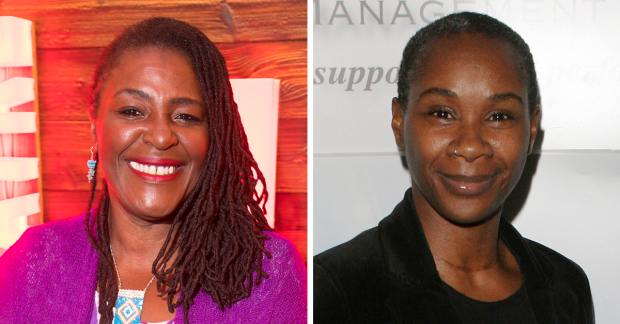
© Dan Wooller for WhatsOnStage
The brilliance of Rafiki
GD: Rafiki is the heartbeat of the show, a spiritual leader – she sees things before they happen. As a South African woman playing this role, it goes back down to my roots as well. I am leading my whole community by playing her which is special.
SC: She is such a wise character, the driving love in the show but also the one who laughs the most. That is a wonderful thing. She doesn't play by any of the rules, but not in a deviant way. Whether it is hitting Simba with a stick, or swinging on a rope laughing her head off, she is joyous.
JBM: I love her humour. I was warned once in rehearsals that I was not allowed to be too funny because I couldn't resist her mischievous ways.
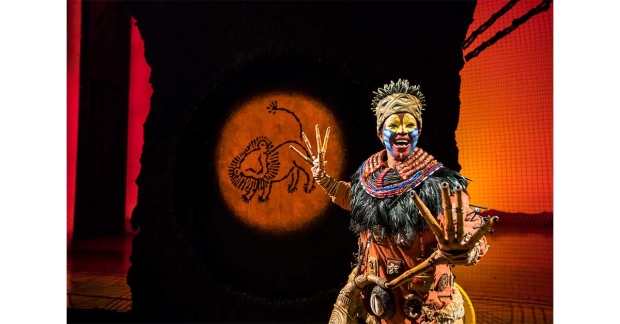
© Disney, photographed by Johan Persson
How has the musical helped you as a performer?
LM: I had talent but The Lion King gave me the opportunity to train and work with experienced directors. They were the ones that helped me to grow and bring my gifts to the stage.
JBM: I was from a poor working class background. I hadn't trained much. I could never read music – I learnt the score from a Walkman. I suppose The Lion King confirmed that it is possible for people like myself to go beyond their wildest dreams.
GD: Because I have done the production in a few countries, I have had the chance to perform with a range of different actors. Each of them brings their own experience and passion and all these people have transformed me as an actor and a singer.
The importance of diversity in the production
SC: At the time, it was one of the few shows that was employing not just a lot of black people, but from a number of cultures from across the world. What I think is great now is how much the posters have changed to reflect that diversity. The posters always used to be The Lion King symbol, but now you can see Simba and Nala and how the show is cast. You do not have to buy a ticket to realise people are employed from across the globe.
JBM: Originally there was criticism that the production was colonising and appropriating other cultures but from the inside it never felt like that. I was flown to South Africa and spent time with real shamans, to see how they worked, how they thought and how to be a spiritual guest. I spent a week there going back to the roots of how this work came about. To allow me that time was extraordinary and something that the production did not necessarily have to do.
LM: The Lion King is the most diverse show in the West End. It celebrates and draws inspiration from many different cultures from the set design to the music to the choreography. I am so proud to have had the chance to share my culture, it is something huge in South Africa.
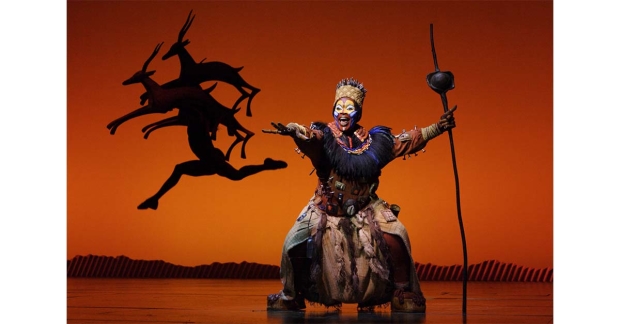
© Disney, photographed by Catherine Ashmore
Favourite moment of the show?
GD: Oh yes, the opening number, "Circle of Life". It is definitely my favourite moment of the show because I'm the first person that the audience see whenever the curtain comes up, the first note they hear.
LM: "Circle of Life", oh my god. When you hit those notes and see the audience with tears falling down their face, you don't know where to look because there are so many things going on around you. It was also amazing to be asked to sing the song in the new movie which came out recently.
JBM: It's the obvious one. I remember when I left the role, I joked with Disney and said it was time for someone else to take my place but asked if I could come and sing "Circle of Life" for the next ten years! I loved it not only musically, but for how the song presents the world and spirituality of the play. I think that is probably the only song in my whole career that I will be able to sing until the day I die.
SC: Always the opening. It is amazing to have that unique perspective of watching the entourage come toward you through the audience. It was lovely to see grown men in business suits regress to about five years-old as they turn around and see an elephant enter. I'd never really experienced anything that electrifying in the theatre, where you can feel the joy and the childlikeness of the audience. I did it for two years and never ever did I get bored of it.



